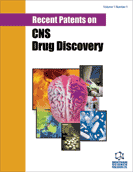Abstract
Adenosine A2A receptors are highly concentrated in the striatum, where they play an important modulatory role of glutamatergic transmission to the GABAergic enkephalinergic neuron, which function is particularly compromised in Parkinsons disease and in the early stages of Huntingtons disease. An important amount of preclinical data suggested the possible application of A2A receptor antagonists in Parkinsons disease, particularly as adjuvant therapy to the currently used dopaminergic agonists. Several A2A receptor antagonists are currently in clinical trials in patients with Parkinsons disease and initial results have been promising. In recent years, many pharmaceutical companies have started programs to develop A2A antagonists for Parkinson ’ s disease and for other indications, such as neurodegenerative diseases in general, depression and restless legs syndrome. Antagonists with high A2A receptor affinity and selectivity have been developed from various chemical classes of compounds, including xanthines, adenines and other amino-substituted heterocyclic compounds. Novel structures include benzothiazole and thiazolopyridine derivatives. The present review describes properties of standard A2A receptor antagonists including those in clinical development. Furthermore, the different chemical classes of A2A receptor antagonists that have been described in the literature, including recent patent literature, will be presented.
Keywords: Adenosine, xanthines, adenine derivative, adenine analog, Parkinson's disease, adenosine receptor, antagonist, istradefylline, A2A receptor, pharmacophore model
 31
31





















